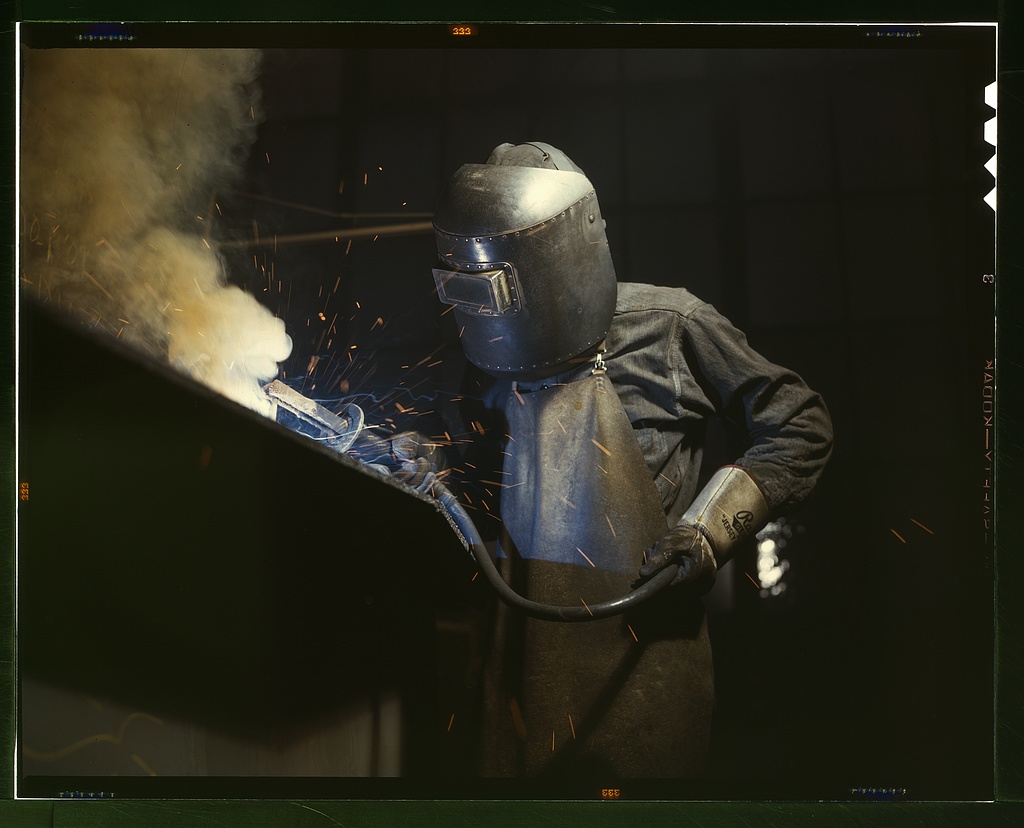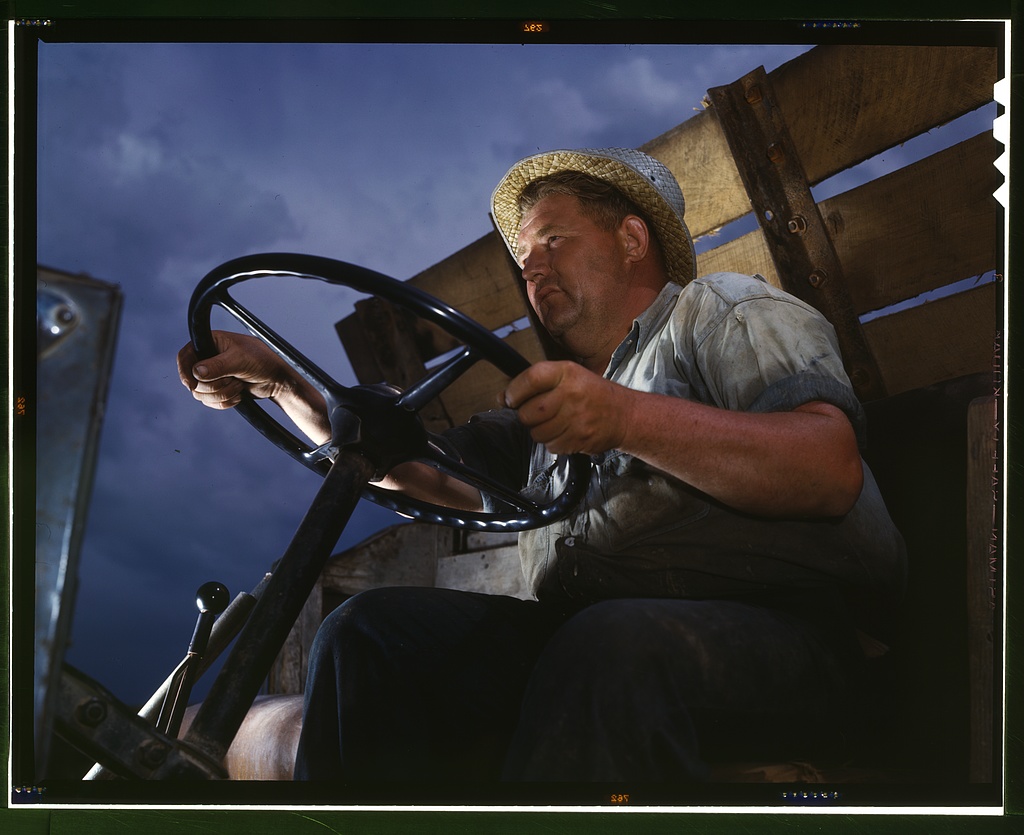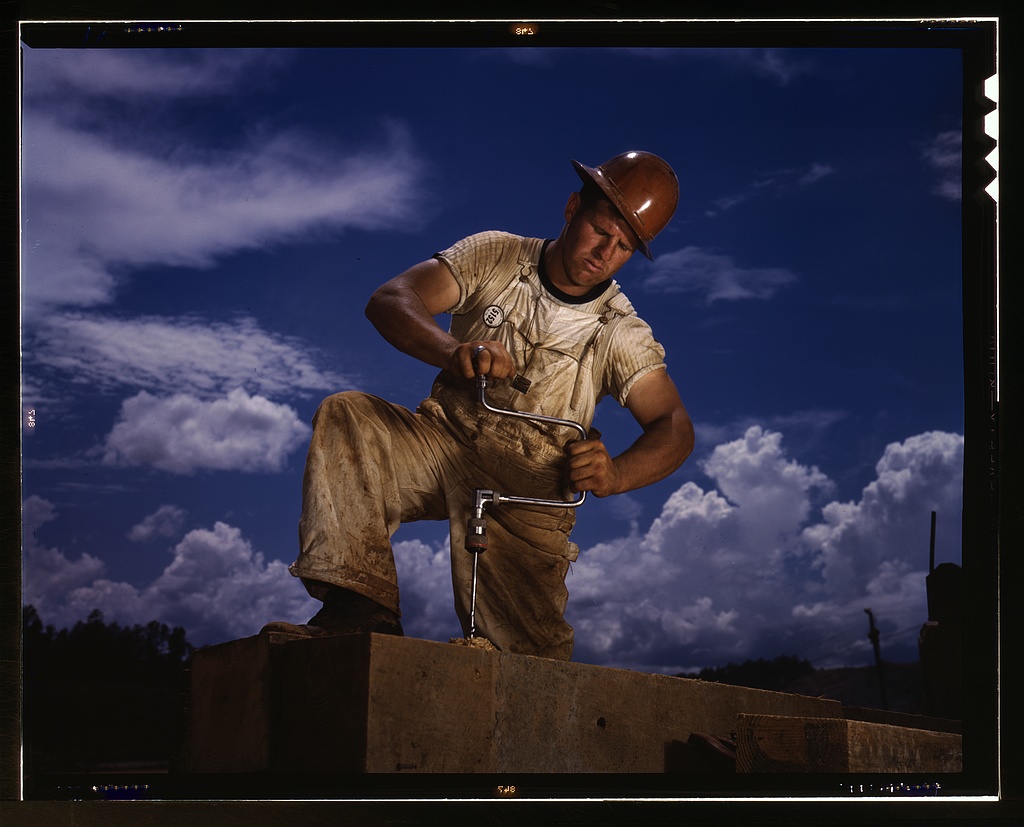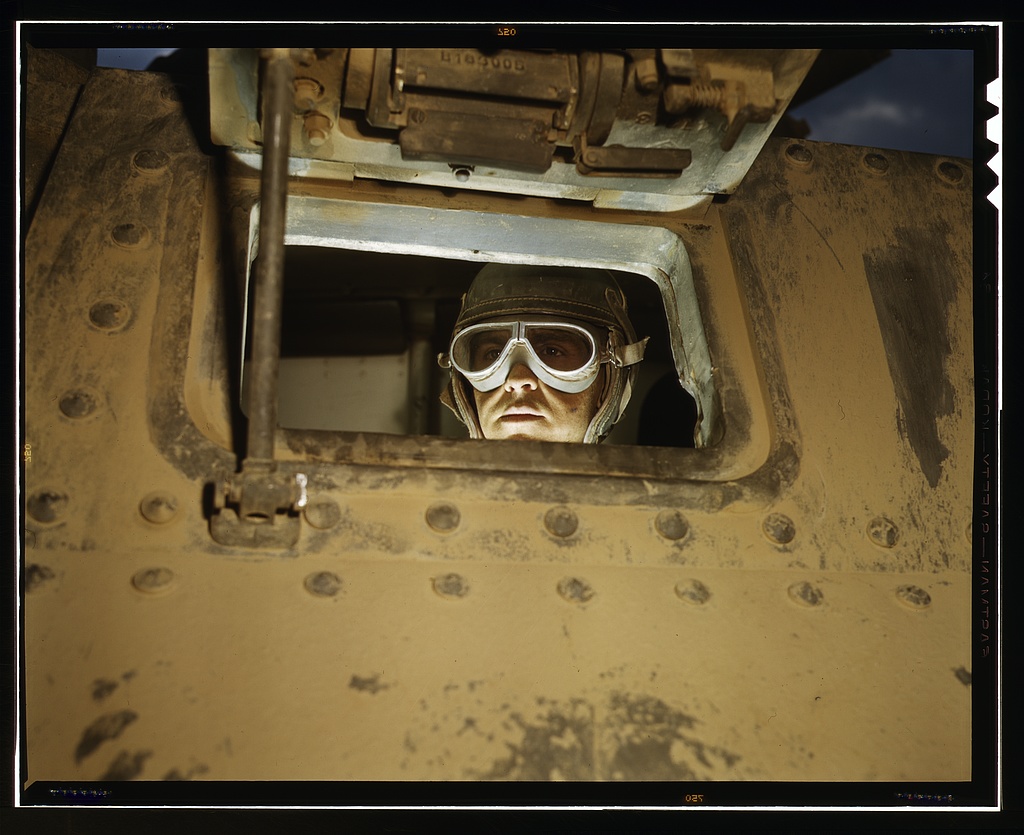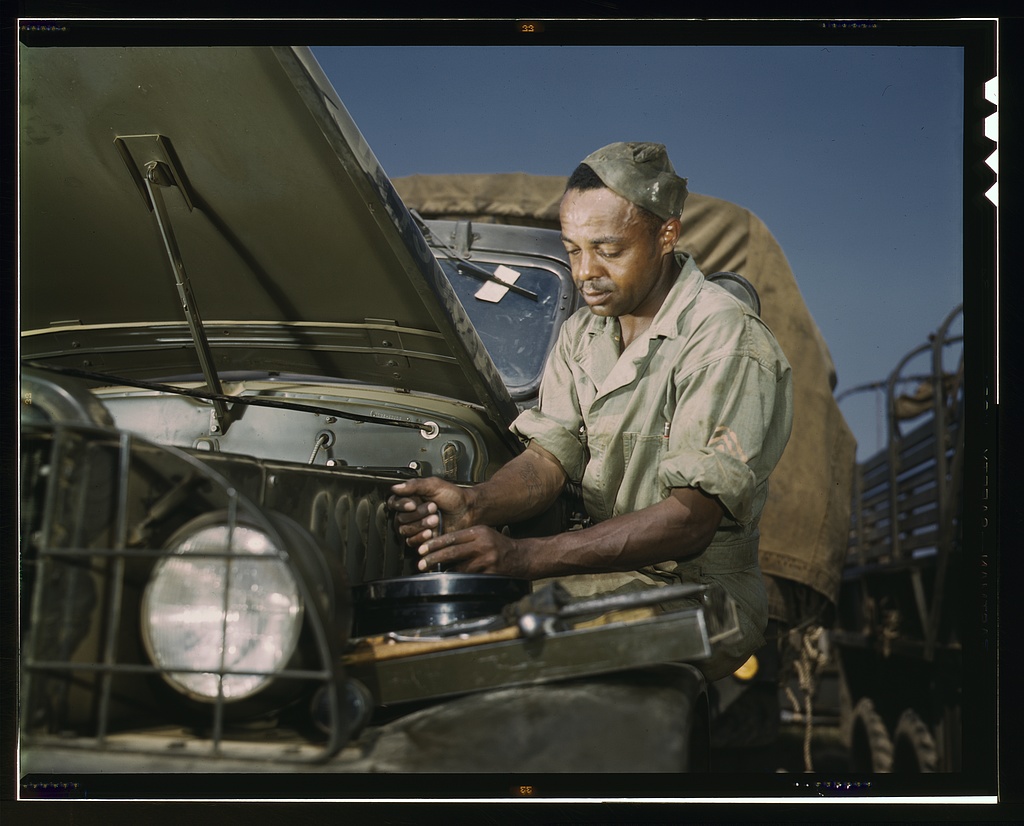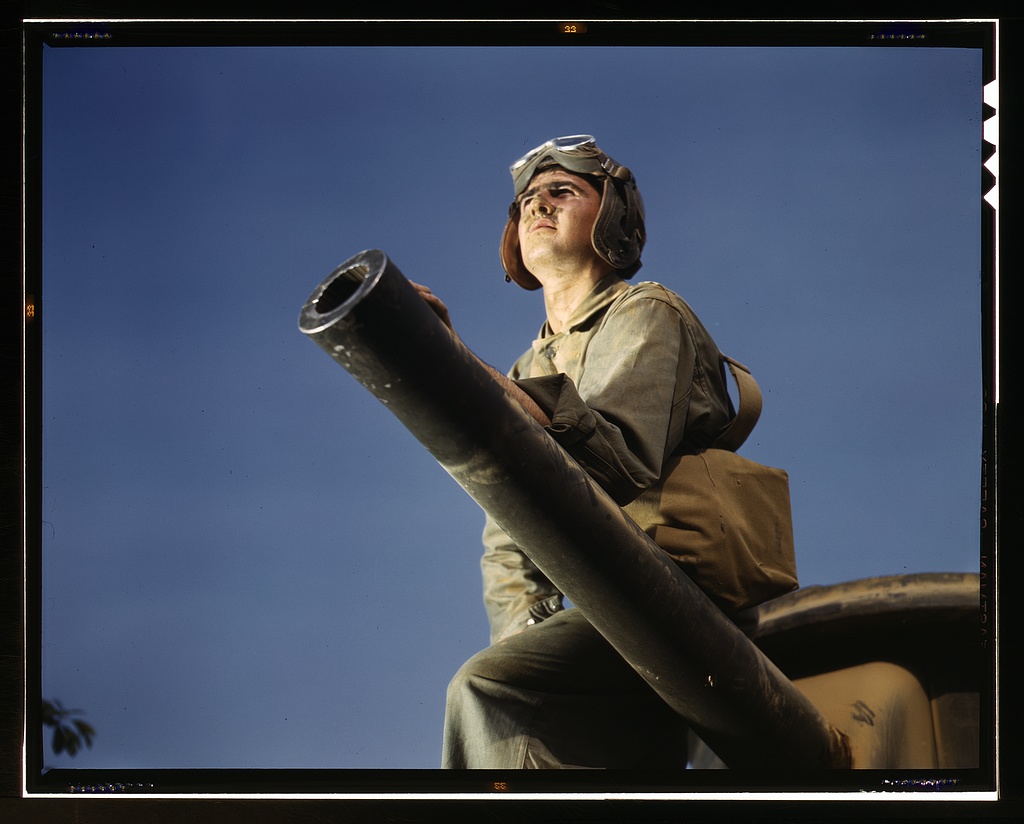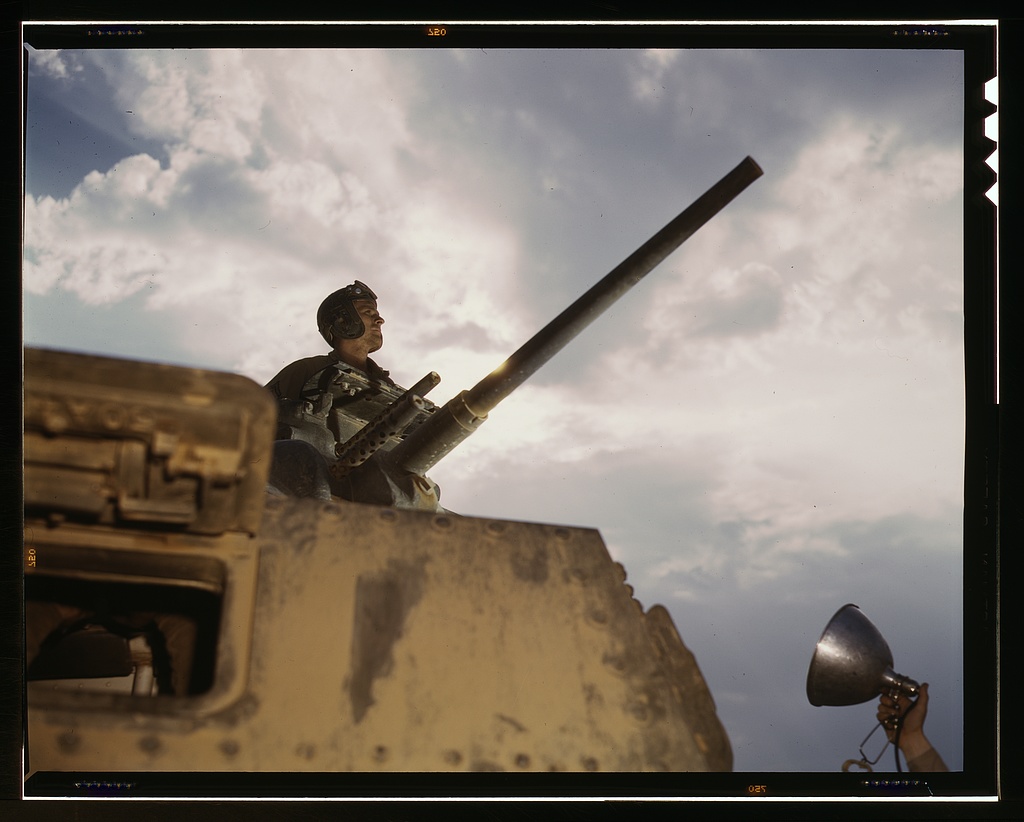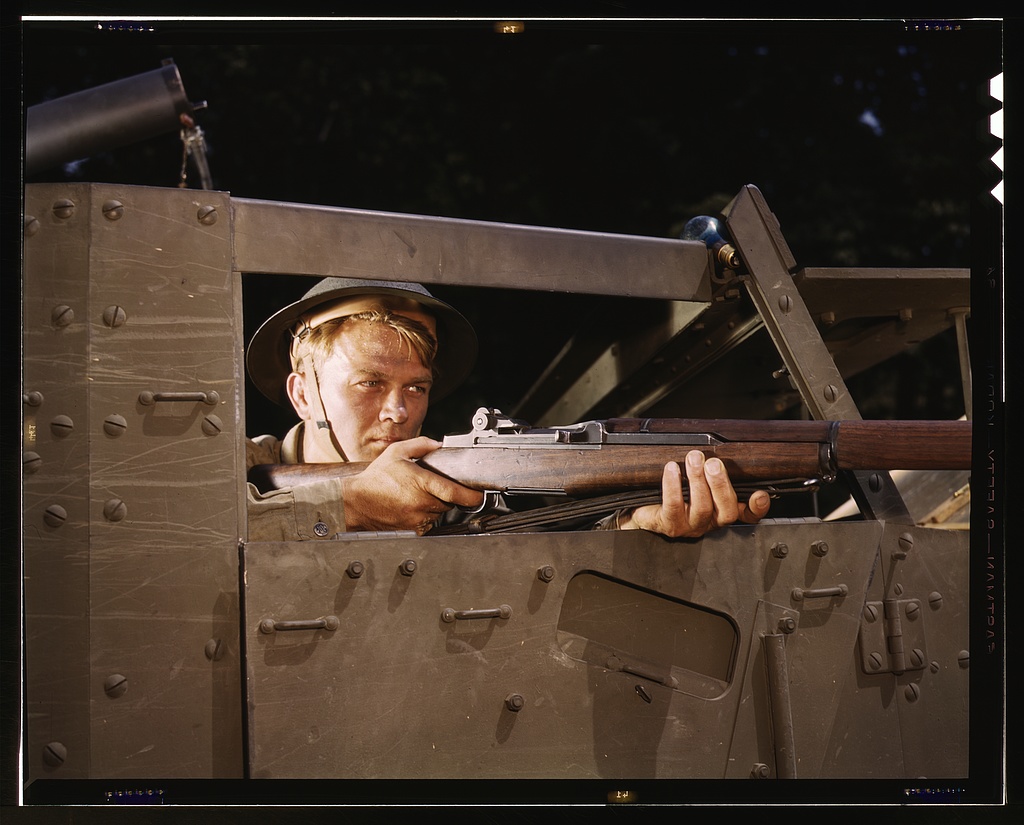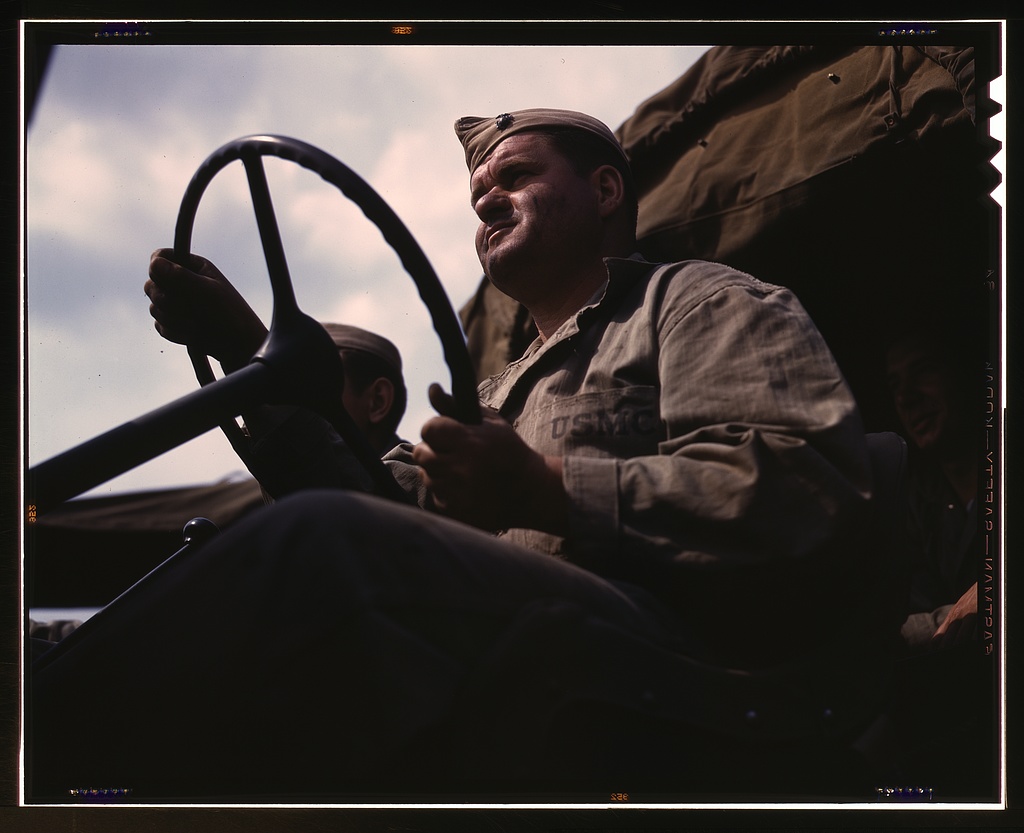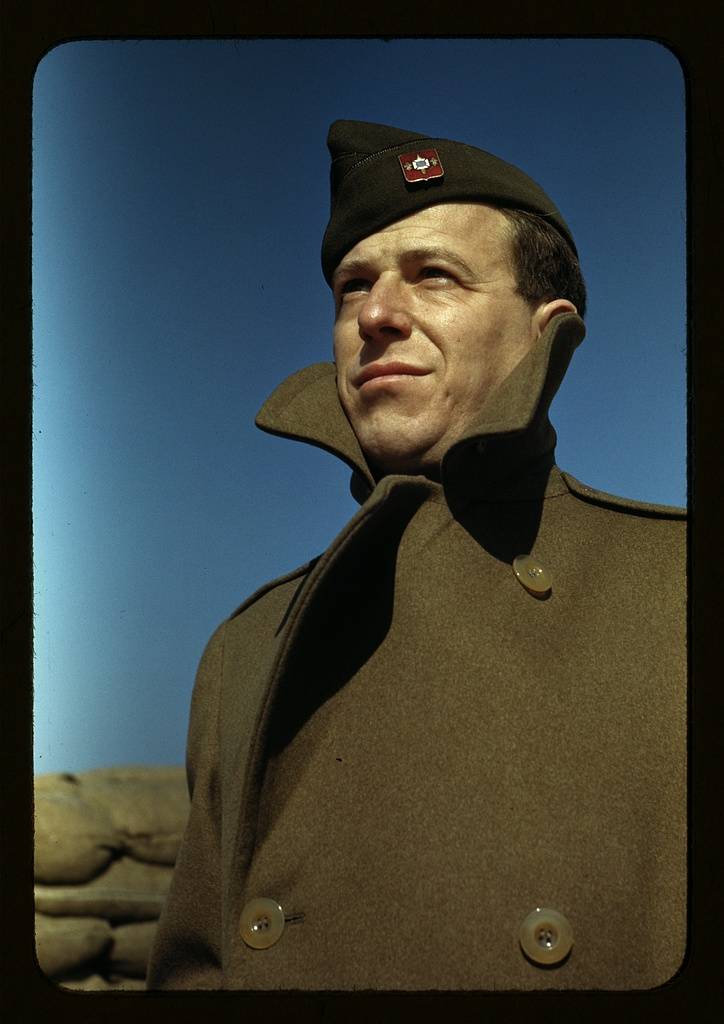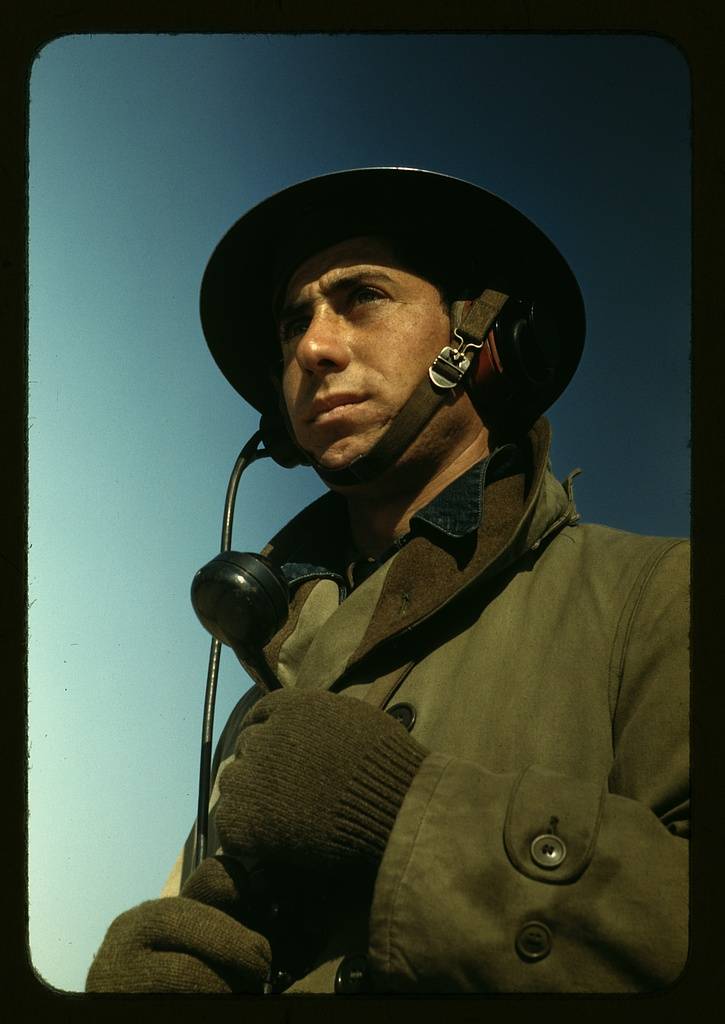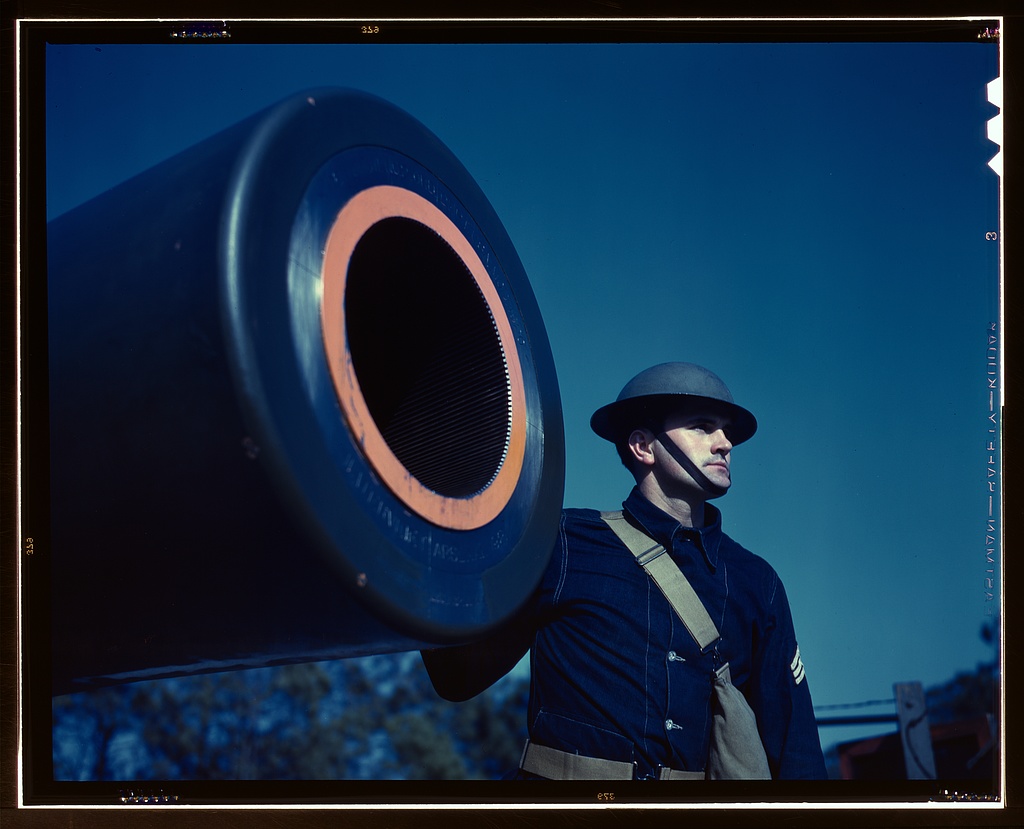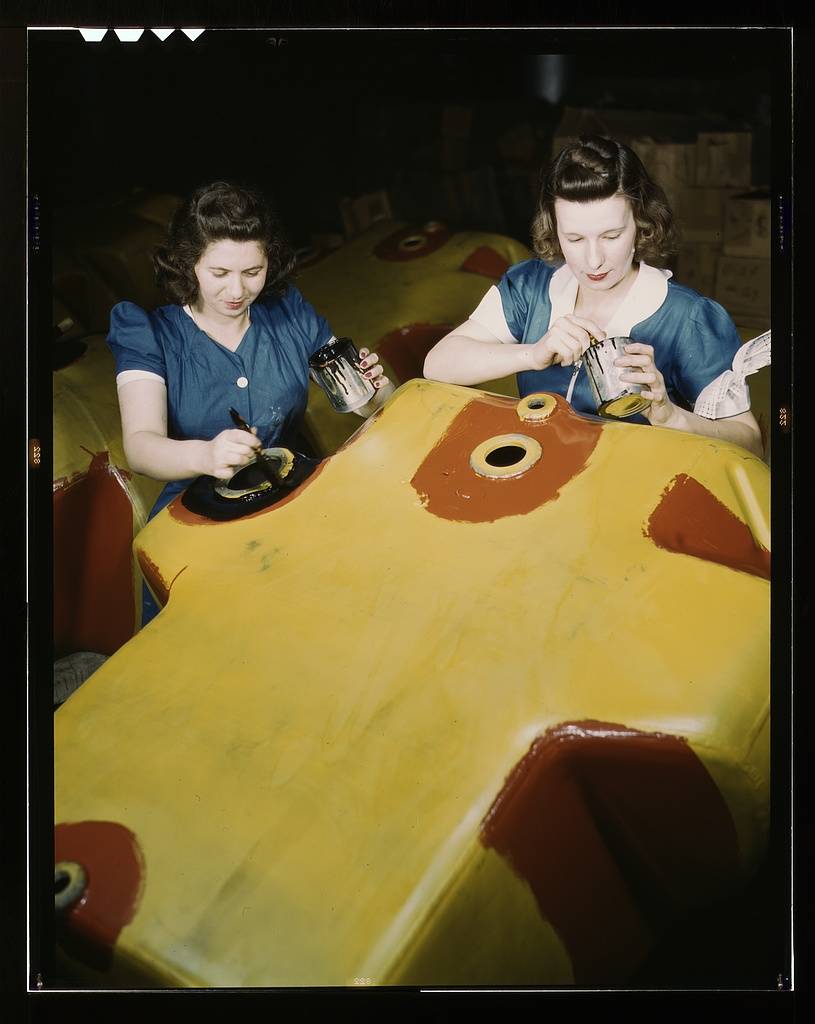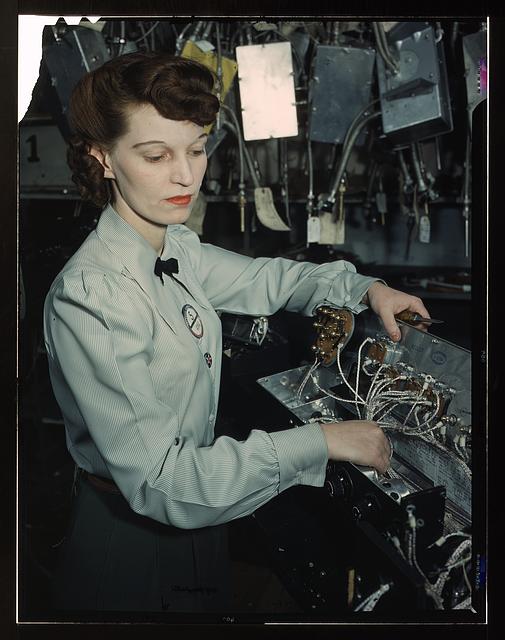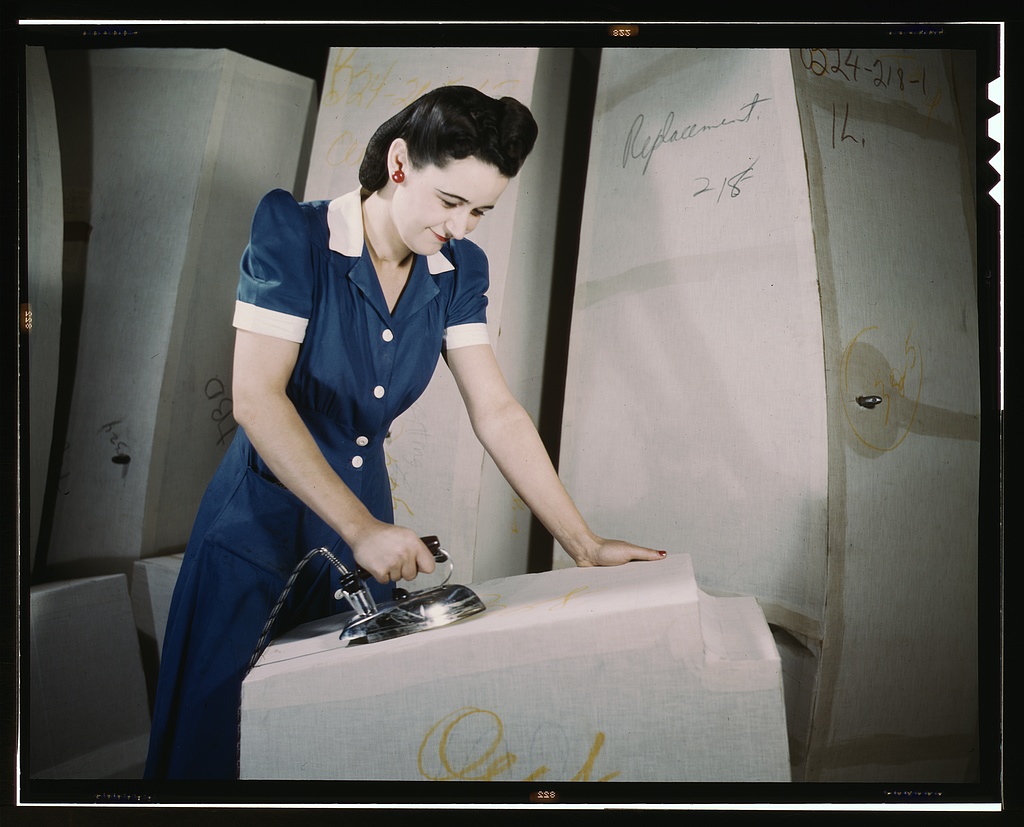
A woman putting finishing touches on the bombardier nose section of a B-17F navy bomber, Long Beach, Calif.
During the Second World War the phrase “Arsenal of Democracy” was a slogan used by U.S. President Franklin D. Roosevelt first used in a radio broadcast delivered on 29 December 1940. During the broadcast Roosevelt promised to help the United Kingdom fight Nazi Germany by helping with military supplies albeit staying out of the actual fighting. The slogan “Arsenal of democracy” referred to the collective efforts of American industry in supporting the Allies. A year after Roosevelt’s speech on 7 December 1941 the Japanese attacked Pearl Harbor and everything changed.
Alfred T. Palmer was born in San Jose in 1906. At the age of ten he visited Yosemite National Park, where his mother Harriet worked, and during the trip took a number of photographs and met photographer Ansel Adams.
In the 1930s, he became the official photographer for various shipping lines. In 1940 Palmer was made the head of the photography department of the National Defense Advisory Commission of the newly established Office of Emergency Management and in this role, he took photographs depicting Americans hard at work, building the so-called “Arsenal of Democracy”. After the US entry into the war at the end of 1941, Palmer became part of the new Office of War Information working in a similar role, aiming to build American morale through his photographs. He was notable for his portraits of men and women at work in the industry. He used a crude lighting system which focused on the person rather than his environment, sometimes creating an extreme contrast in his images.
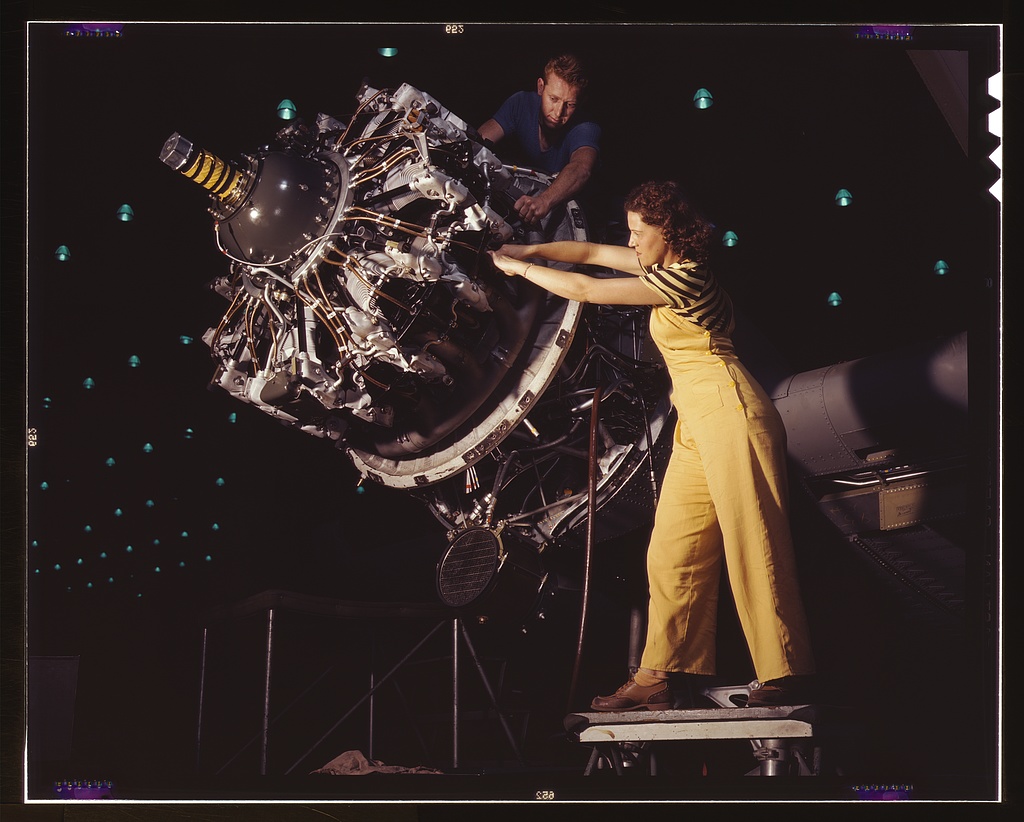
Women are trained to do precise and vital engine installation detail in Douglas Aircraft Company plants, Long Beach, Calif.
In 1939 when Hitler attacked Poland the United States had a smaller army than Portugal. In June of 1940 President Roosevelt and Congress passed a bill for the building of a major two ocean navy. At that time Roosevelt formed the National Defense Advisory Commission of the Office of Emergency Management (OEM) and Palmer was chosen to head the photography department. To rally and inform citizens about the use of their tax dollars and resources, Palmer was sent out to photograph Americans building what Roosevelt termed the Arsenal of Democracy…
In 1941, after the bombing of Pearl Harbor, Palmer became official photographer for the newly formed Office of War Information (OWI). – Alfred Palmer
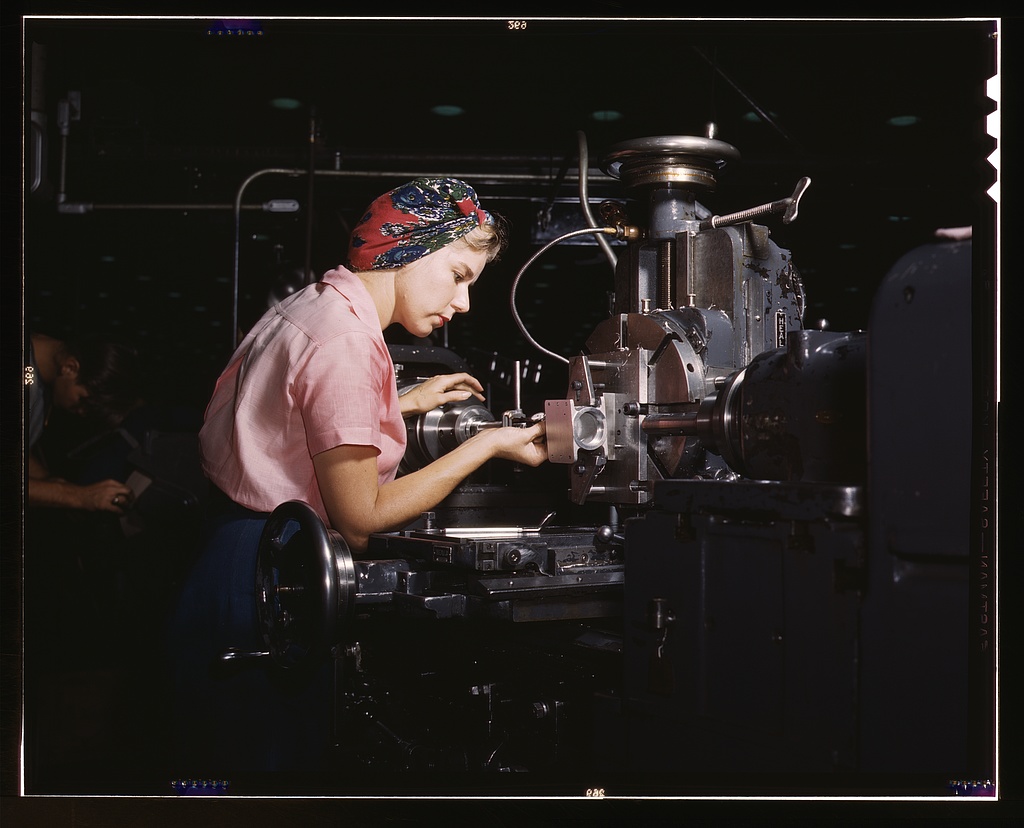
Women become skilled shop technicians after careful training in the school at the Douglas Aircraft Company plant, Long Beach, Calif.
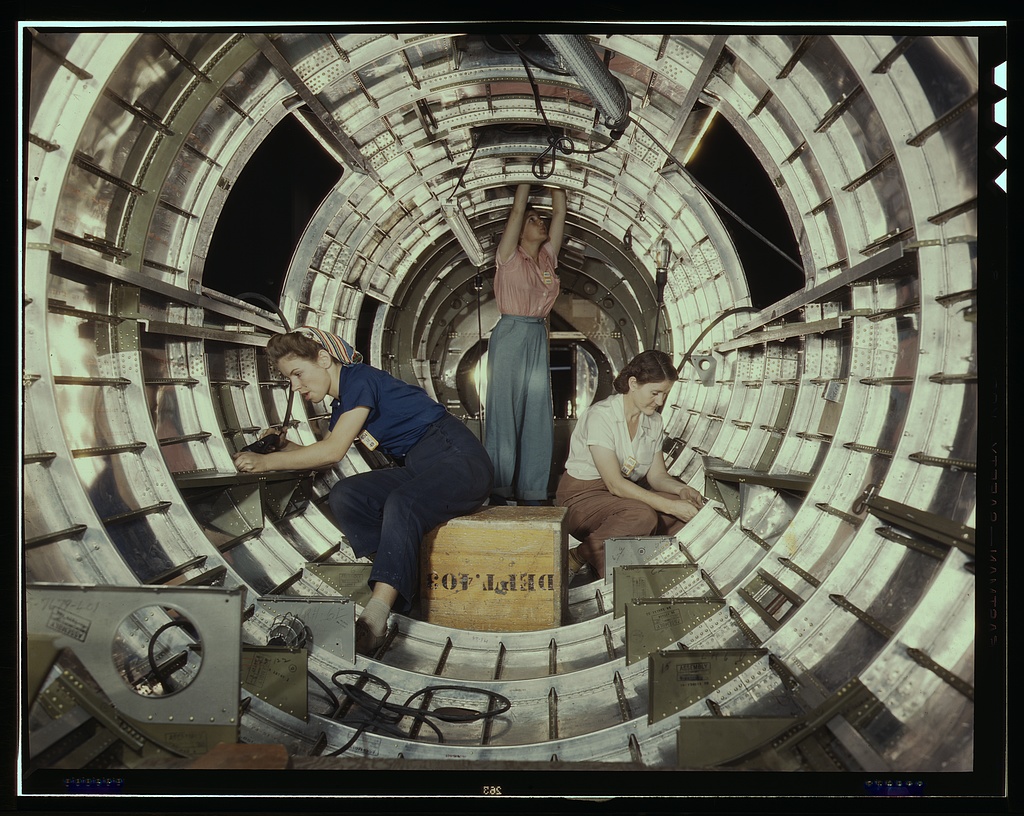
Women workers install fixtures and assemblies to a tail fuselage section of a B-17 bomber at the Douglas Aircraft Company plant, Long Beach, Calif.
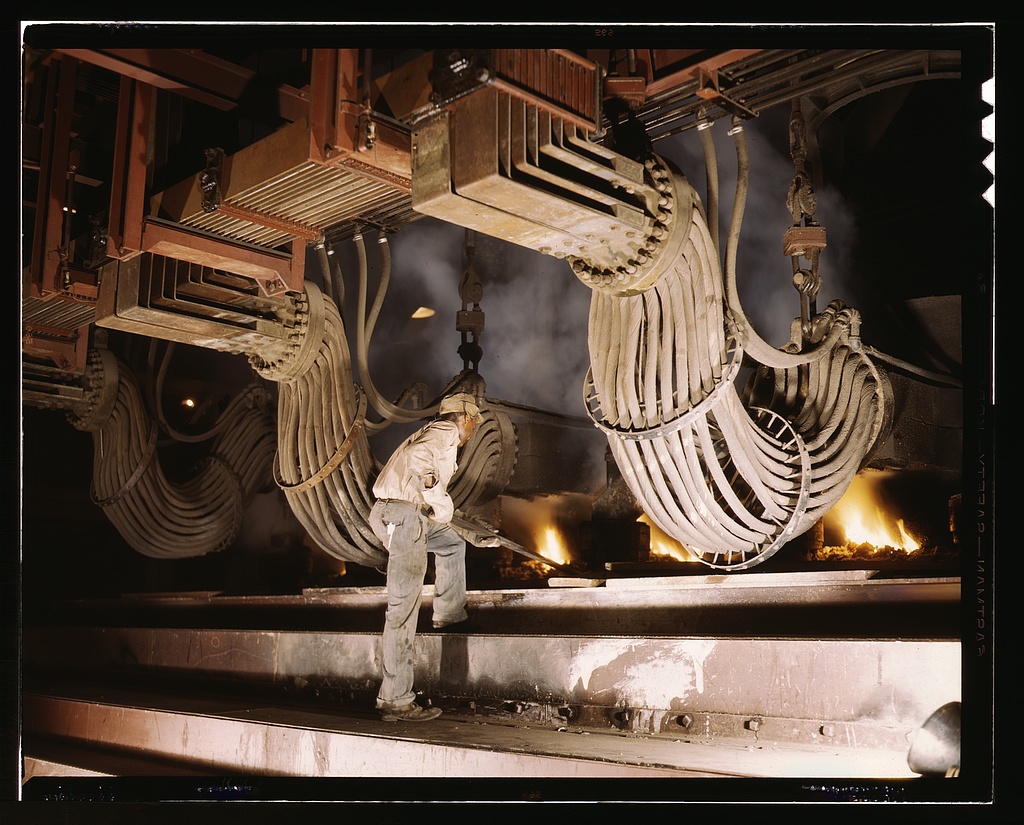
Large electric phosphate smelting furnace used in the making of elemental phosphorus in a TVA chemical plant in the Muscle Shoals area, Alabama
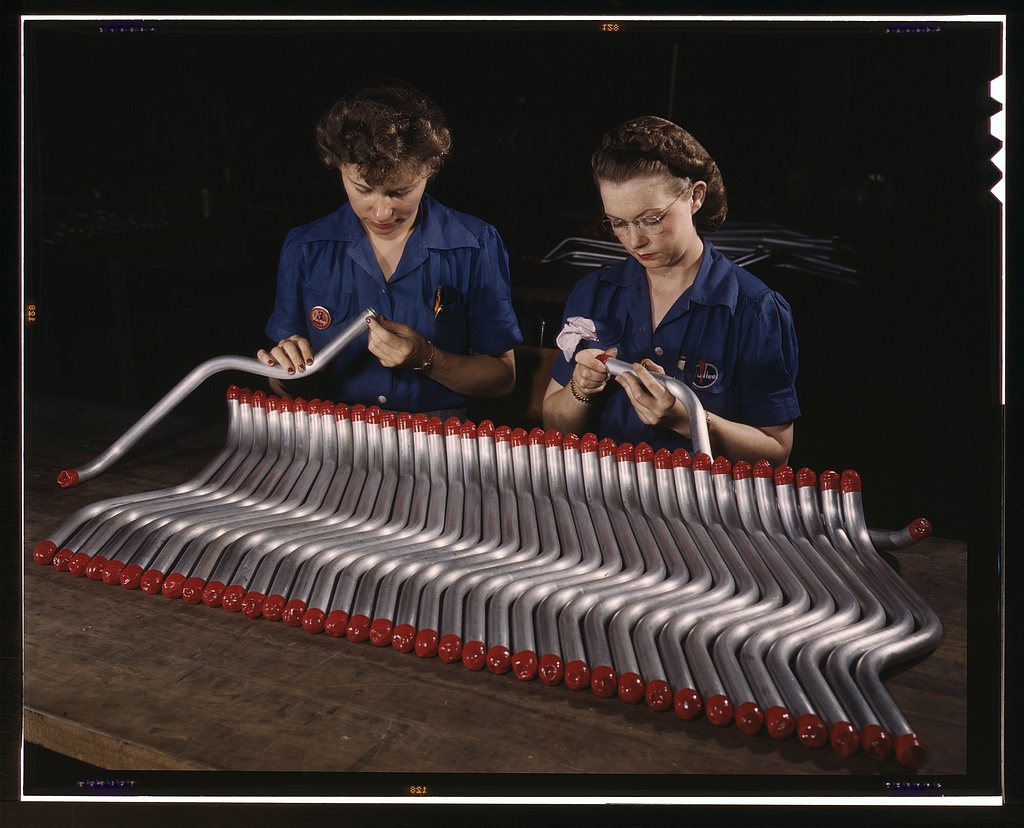
Two women workers are shown capping and inspecting tubing which goes into the manufacture of the %22Vengeance%22 (A-31) dive bomber made at Vultee’s Nashville division, Tennessee.
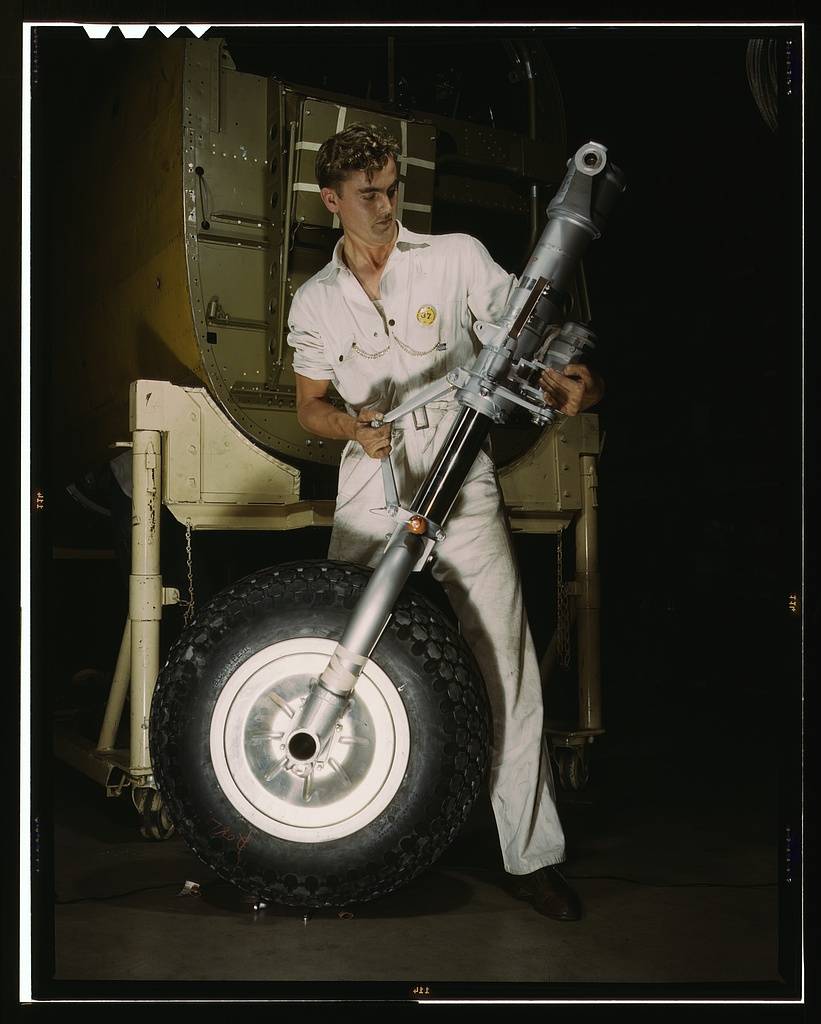
A nose wheel and landing gear assembly for a B-25 bomber under construction in a western aircraft plant, North American Aviation, Inc., Calif.
![Part of the cowling for one of the motors for a B-25 bomber is assembled in the engine department of North American [Aviation, Inc.]'s Inglewood, Calif., plant](https://flashbak.com/wp-content/uploads/2016/07/Part-of-the-cowling-for-one-of-the-motors-for-a-B-25-bomber-is-assembled-in-the-engine-department-of-North-American-Aviation-Inc.s-Inglewood-Calif.-plant.jpg)
Part of the cowling for one of the motors for a B-25 bomber is assembled in the engine department of North American [Aviation, Inc.]’s Inglewood, Calif., plant
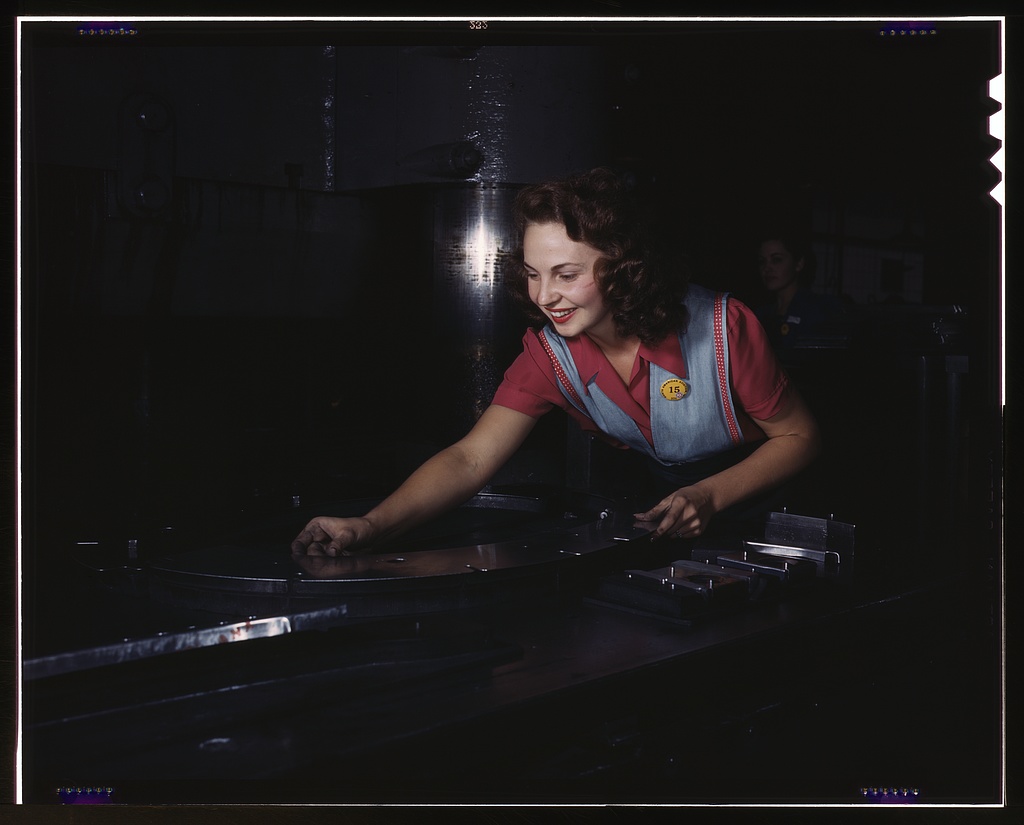
Metal parts are placed on masonite by this woman employee before they slide under the multi-ton hydropress, North American Aviation, Inc., Inglewood, Calif.
![Sheet metal parts are numbered with this pneumatic numbering machine in North American's sheet metal department, N[orth] A[merican] Aviation, Inc., Inglewood, Calif.](https://flashbak.com/wp-content/uploads/2016/07/Sheet-metal-parts-are-numbered-with-this-pneumatic-numbering-machine-in-North-Americans-sheet-metal-department-North-American-Aviation-Inc.-Inglewood-Calif..jpg)
Sheet metal parts are numbered with this pneumatic numbering machine in North American’s sheet metal department, N[orth] A[merican] Aviation, Inc., Inglewood, Calif.
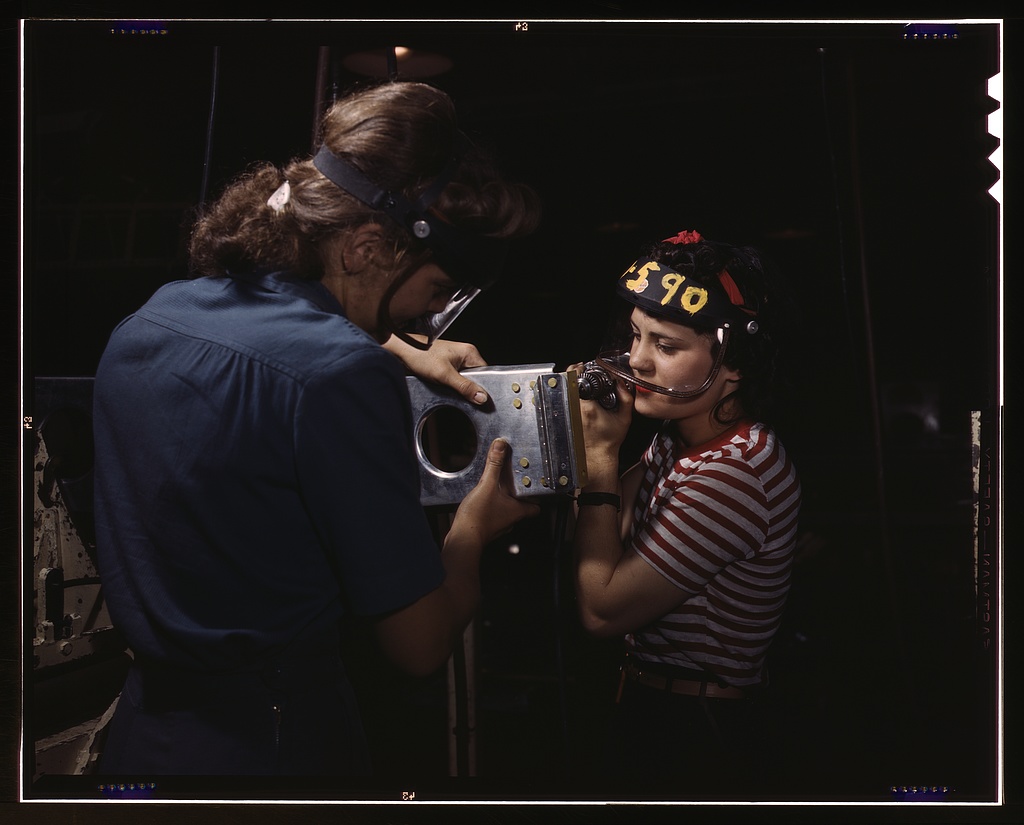
Two women employees of North American Aviation, Incorporated, assembling a section of a wing for a P-51 fighter plane
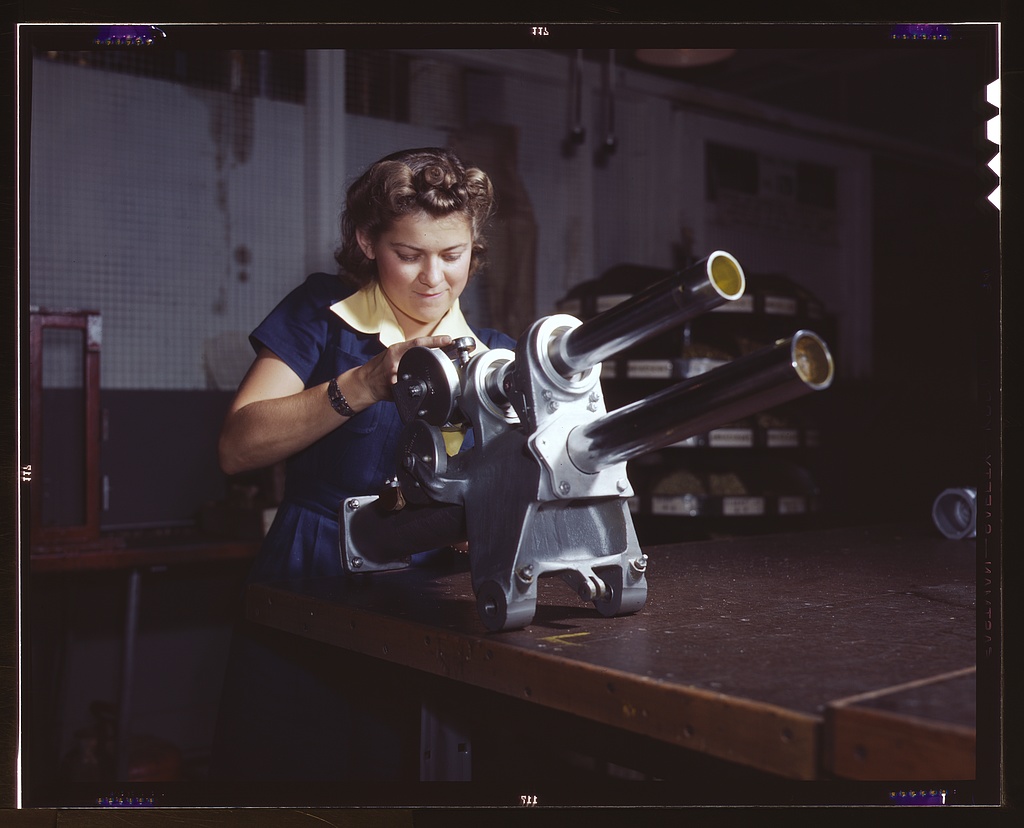
A young woman employee of North American Aviation, Incorporated, working over the landing gear mechanism of a P-51 fighter plane, Inglewood, Calif. The mechanism resembles a small cannon
![Riveting team working on the cockpit shell of a B-25 [i.e. C-47] bomber at the plant of North American Aviation, Inc., Inglewood [i.e. Douglas Aircraft Company, Long Beach], Calif.](https://flashbak.com/wp-content/uploads/2016/07/Riveting-team-working-on-the-cockpit-shell-of-a-B-25-i.e.-C-47-bomber-at-the-plant-of-North-American-Aviation-Inc.-Inglewood-i.e.-Douglas-Aircraft-Company-Long-Beach-Calif..jpg)
Riveting team working on the cockpit shell of a B-25 [i.e. C-47] bomber at the plant of North American Aviation, Inc., Inglewood [i.e. Douglas Aircraft Company, Long Beach], Calif.
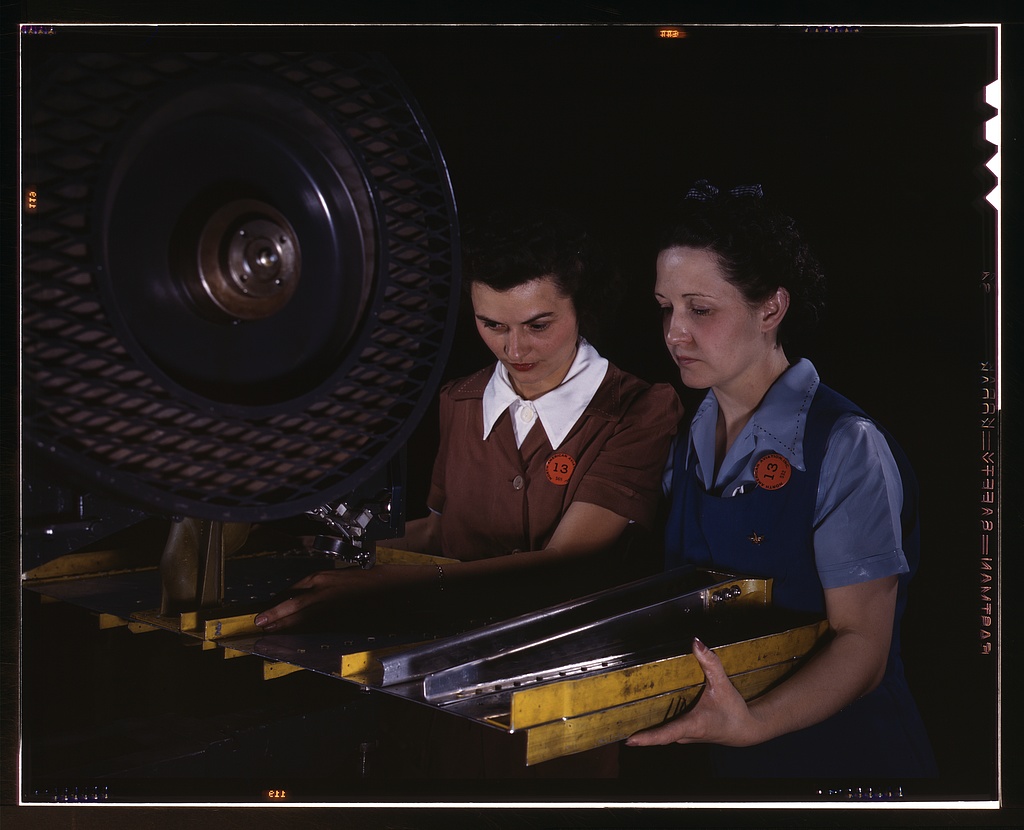
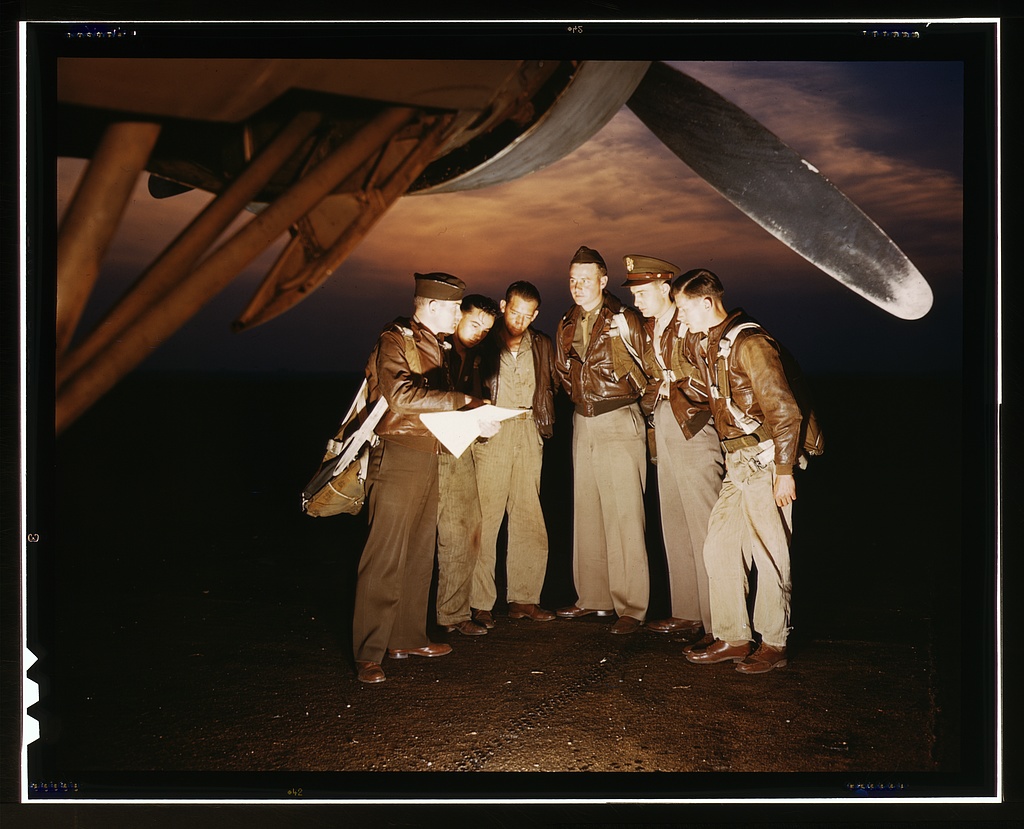
Here’s our mission. A combat crew receives final instructions just before taking off in a mighty YB-17 bomber from a bombardment squadron base at the field, Langley Field, Va.
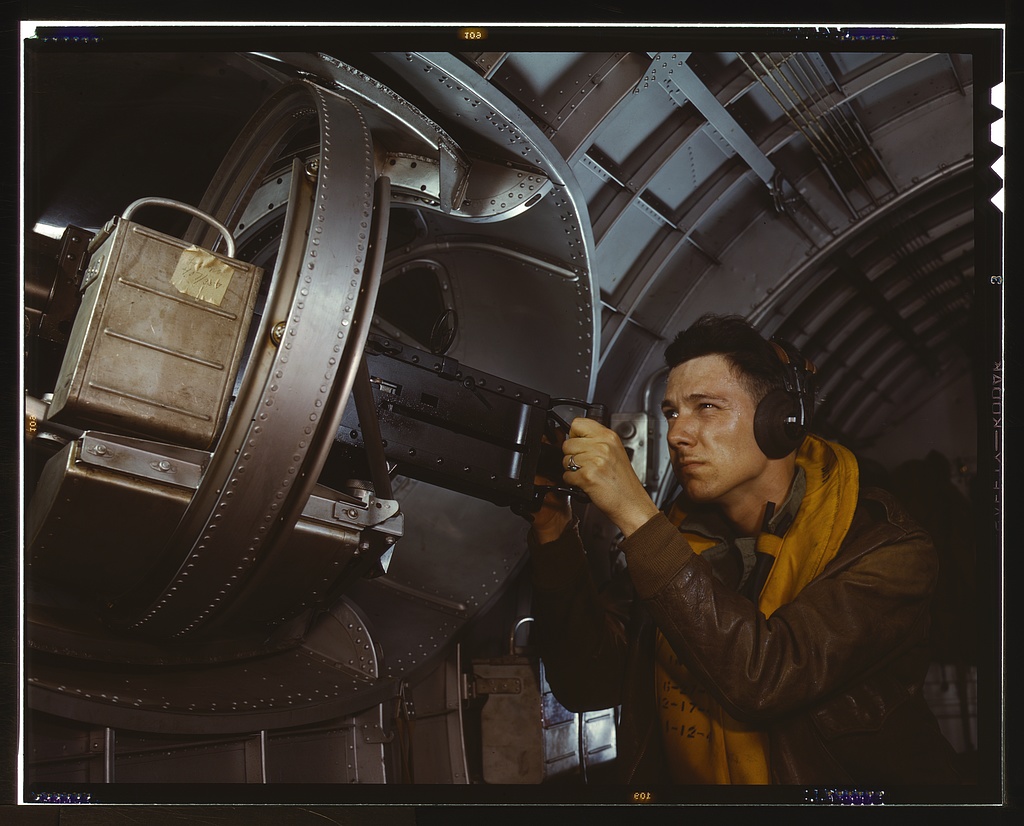
Hitler would like this man to go home and forget about the war. A good American non-com at the side machine gun of a huge YB-17 bomber is a man who knows his business and works hard at it
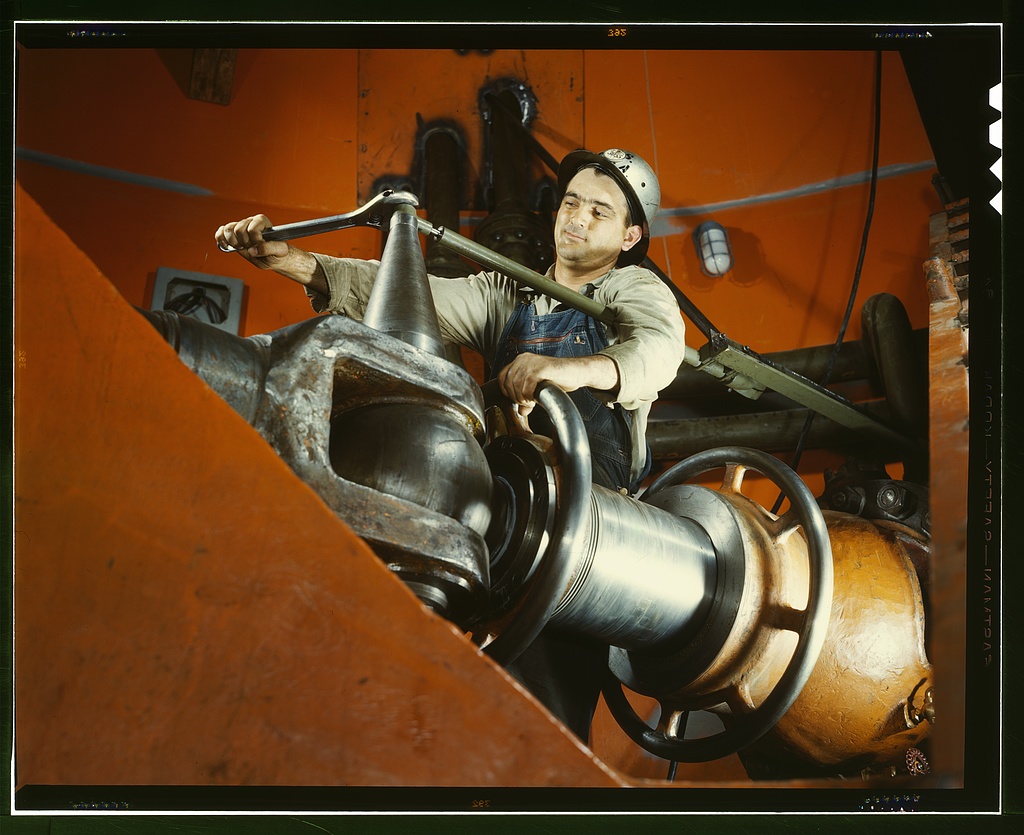
Tightening a nut on a guide vane operating seromotor in TVA’s hydroelectric plant, Watts Bar Dam, Tennessee.
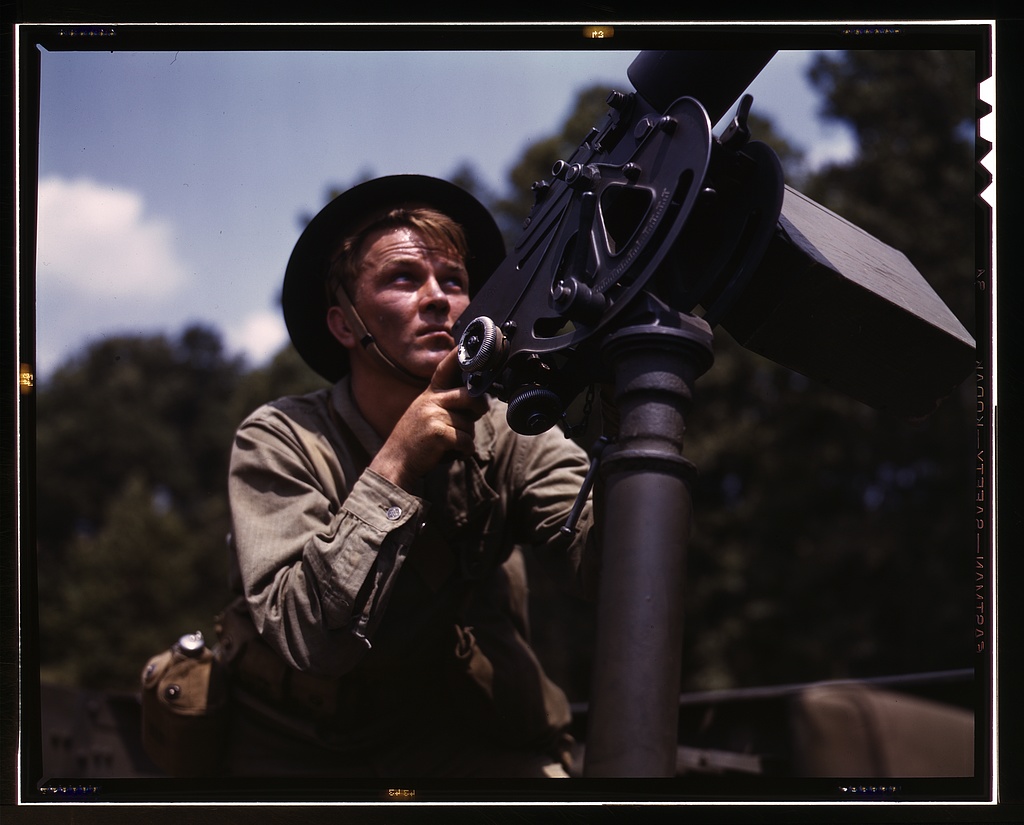
Good man, good gun- a private of the armored forces does some practice shooting with a 30-calibre Browning machine gun, Fort Knox, Ky. The gun is mounted on a pedestal for anti-aircraft work
Would you like to support Flashbak?
Please consider making a donation to our site. We don't want to rely on ads to bring you the best of visual culture. You can also support us by signing up to our Mailing List. And you can also follow us on Facebook, Instagram and Twitter. For great art and culture delivered to your door, visit our shop.
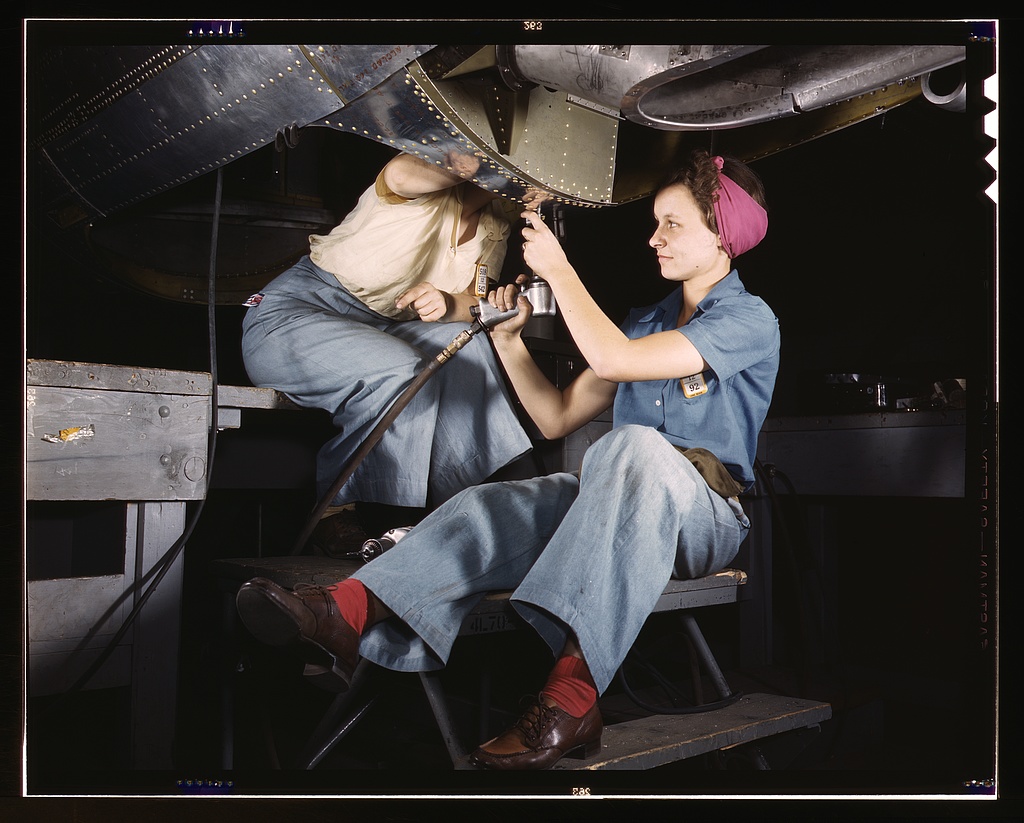
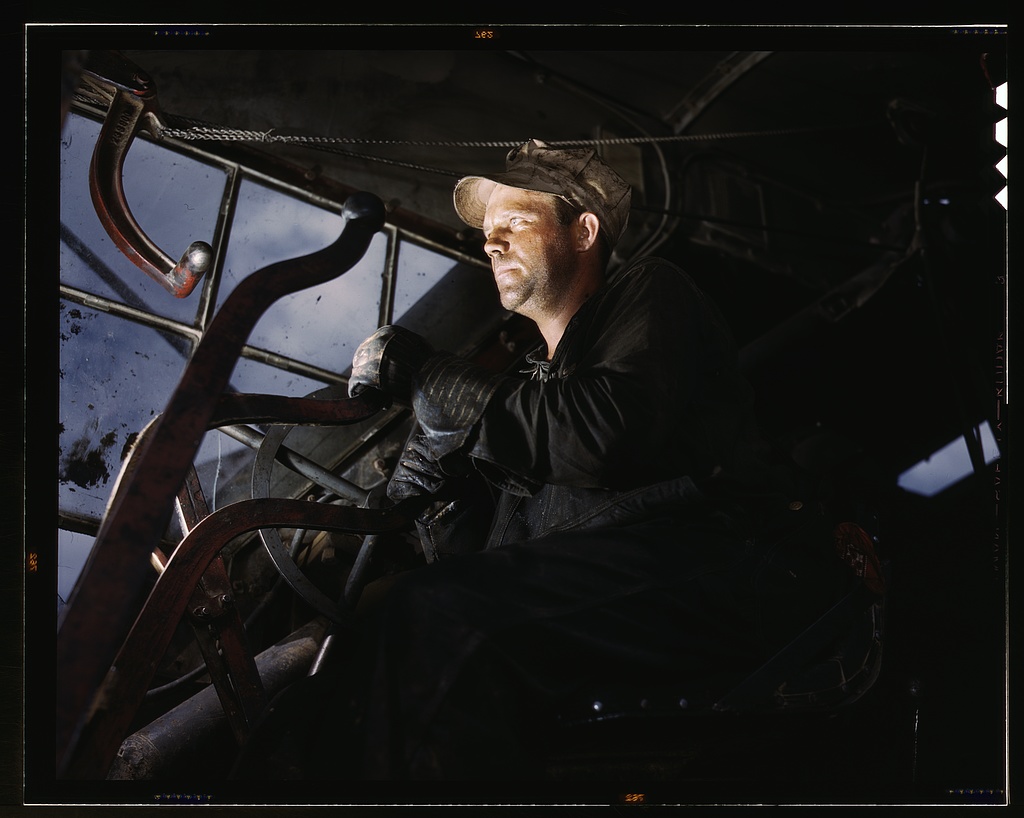
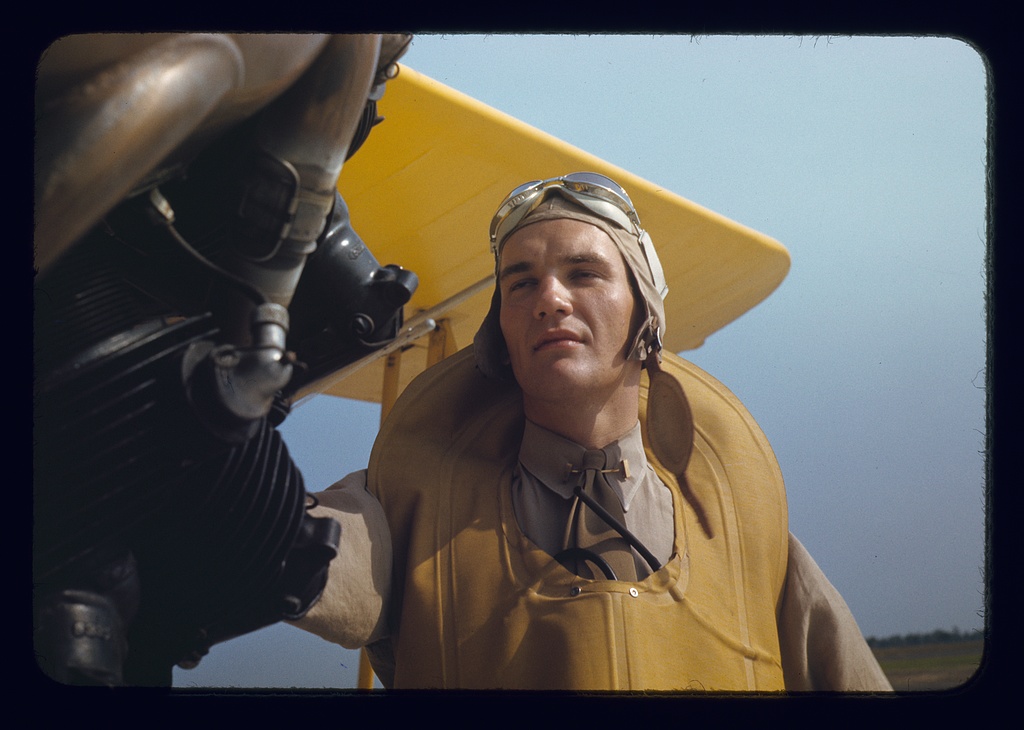
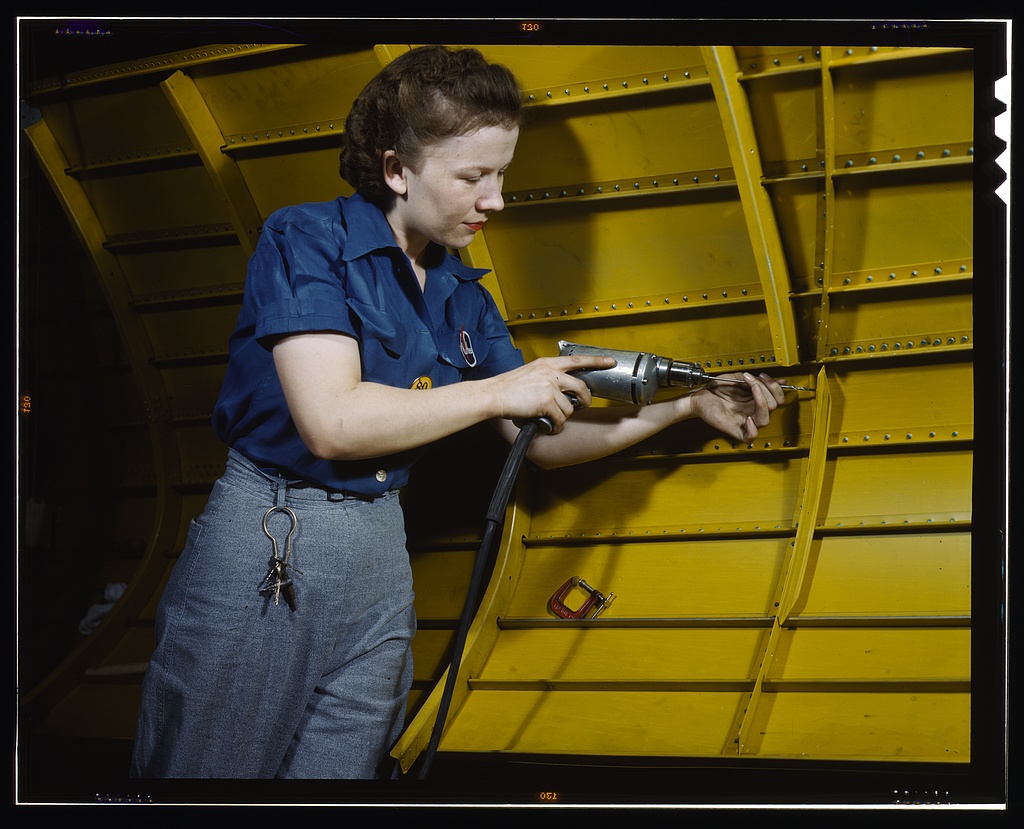
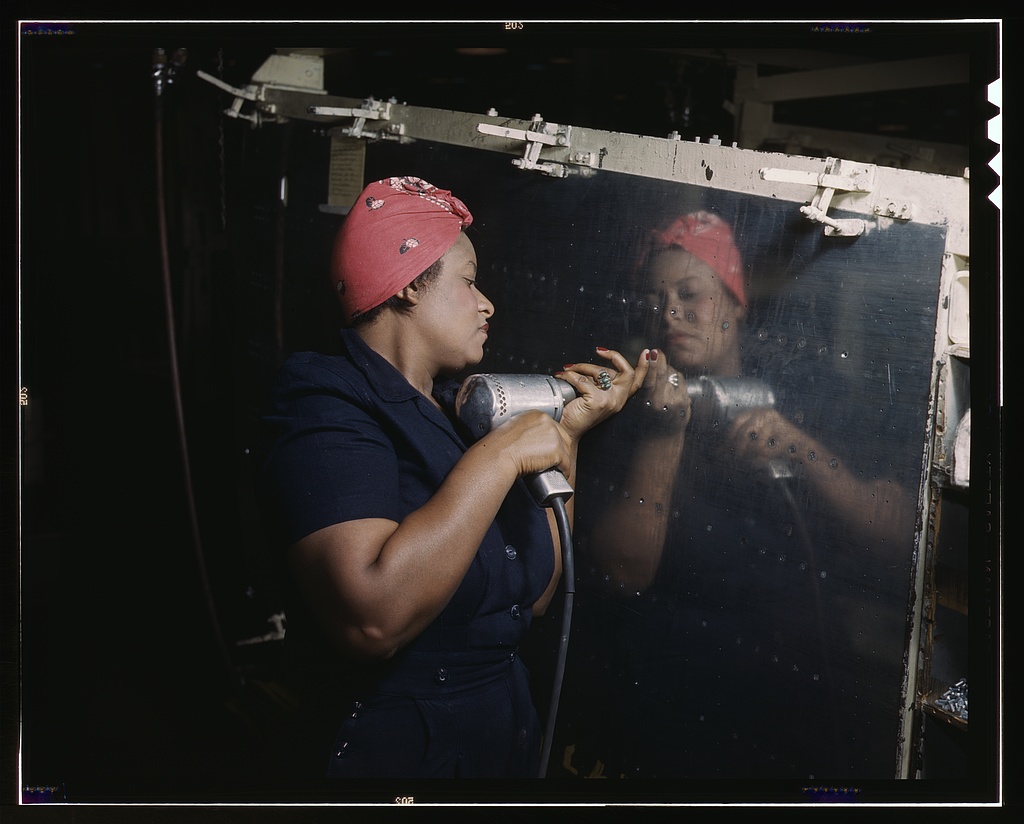
![Working on a Vengeance dive bomber, Vultee [Aircraft Inc.], Nashville, Tennessee](https://flashbak.com/wp-content/uploads/2016/07/Working-on-a-22Vengeance22-dive-bomber-Vultee-Aircraft-Inc.-Nashville-Tennessee.jpg)
